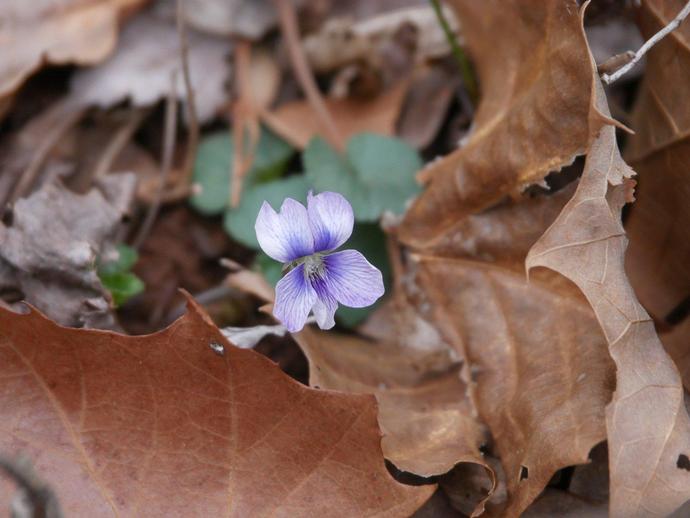March 25, 2020
These tiny flowers often pop up in yards, and a lot of people even spritz them with weed killer. Many of those same people then go out and buy close relatives of this plant to decorate their flower beds. This is Viola sororia, better known as the common blue violet, wood violet, or wild violet. You might think that these are closely related to African violets; in fact, African violets belong to a different genus altogether! The most beloved members of the Viola genus are that perennial favorite, the pansy. Pansies were created by hybridizing specific plants within the genus Viola, and that careful hybridization is what gives us the wide variety of flower colors we enjoy today. While common violets might not be as showy, they do serve an important purpose. The caterpillars of fritillary butterflies feed on the plants, and they also serve as food for bobwhites, wild turkey, deer, rabbits, and others. In order to spread their seeds, common violets grow something on each seed called an "elaiosome." An elaiosome is a fatty structure rich in lipids and proteins, and ants consider them to be a delicious treat. The ants carry the seeds back to their colony, feed the elaiosome to their larvae, and then throw the seed away in the nest's waste chamber. The waste chamber, which contains dead ants and ant frass, is a perfect place for the seed to germinate and grow. This relationship is known as "myrmecochory," which is Greek for "ant circular dance." "Ant circular dance" also sounds like something you would witness at an ant wedding. #BenInNature
About this post: Social distancing can be difficult, but the next few weeks present a great opportunity to become reacquainted with nature. While he is working from home, Administrator of Science Ben Williams is venturing outdoors each day to record a snapshot of the unique sights that can be found in the natural world.
This post brought to you by VMNH supporters Janet and Richard Ashby.

 Hours & Admissions
Hours & Admissions Directions
Directions

